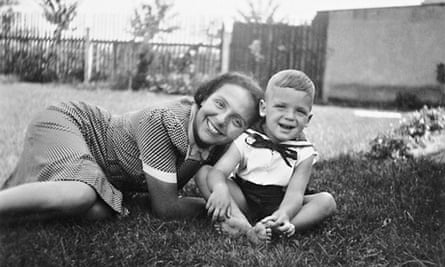Tributes have been paid to Alice Herz-Sommer, a renowned concert pianist who was believed to have been the world's oldest Holocaust survivor, after she died in London at the age of 110.
She was born into a German-speaking Jewish family in Prague at a time when it was part of the Austro-Hungarian empire, and endured the city's ghetto following the Nazi invasion of Czechoslovakia. She then spent two years in Theresienstadt (Terezín) concentration camp, where nearly 35,000 prisoners perished.
In an extraordinary life, which was the subject of film nominated for the best short documentary at next Sunday night's Academy Awards, she counted Franz Kafka as a family friend when she was young and carried a devotion to music that sustained her in the camp.

She died in a hospital on Sunday morning after being admitted on Friday, according to her family. Her grandson, Ariel Sommer, said: "Alice Sommer passed away peacefully this morning with her family by her bedside.
"Much has been written about her, but to those of us who knew her best, she was our dear 'Gigi'. She loved us, laughed with us, and cherished music with us.
"She was an inspiration and our world will be significantly poorer without her by our side. We mourn her loss and ask for privacy in this very difficult moment."

Herz-Sommer came from a musical Moravian family. Her formal musical education began at five and she was soon taking piano lessons with Conrad Ansorge, a pupil of Franz Liszt.
She met her husband to be, Leopold Sommer, was also a musician, in 1931 and married him two weeks later. The couple and their son, Raphael, were sent from Prague in 1943 to a camp in the Czech city of Terezín (Theresienstadt in German) where inmates were allowed to stage concerts in which she frequently starred. She never saw her husband again after he was moved to Auschwitz in 1944 and many in her extended family and most of the friends she had grown up with were also lost in the Holocaust.
Following the war, she went to Israel in 1949 with her sisters and taught music in Tel Aviv before moving to London at the prompting of her son, who had grown up to become a concert cellist but who died suddenly in 2001 while on tour.
In a 2006 interview with the Guardian – when she was living alone, continuing to practice the piano for three hours a day and had also only recently given up a daily swimming routine – she spoke of her love of life and her passion for music.
Of her concentration camp ordeal, she said: " 'People ask, 'How could you make music?' We were so weak. But music was special, like a spell, I would say. I gave more than 150 concerts there. There were excellent musicians there, really excellent. Violinists, cellists, singers, conductors and composers."

Asked if she ever thought about why she survived, she replied: "My temperament. This optimism and this discipline. Punctually, at 10am, I am sitting there at the piano, with everything in order around me. For 30 years I have eaten the same, fish or chicken. Good soup, and this is all. I don't drink, not tea, not coffee, not alcohol. Hot water. I walk a lot with terrible pains, but after 20 minutes it is much better. Sitting or lying is not good."
She added: "I am looking for the nice things in life. I know about the bad things, but I look only for the good things.
"The world is wonderful, it's full of beauty and full of miracles. Our brain, the memory, how does it work? Not to speak of art and music … It is a miracle."










